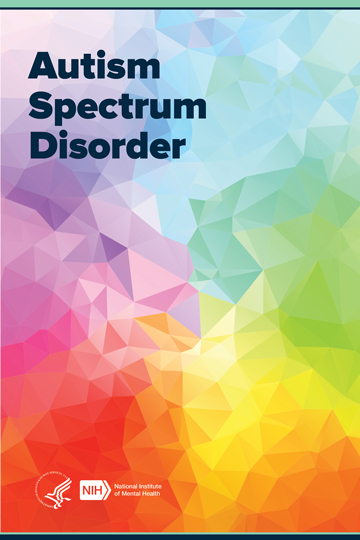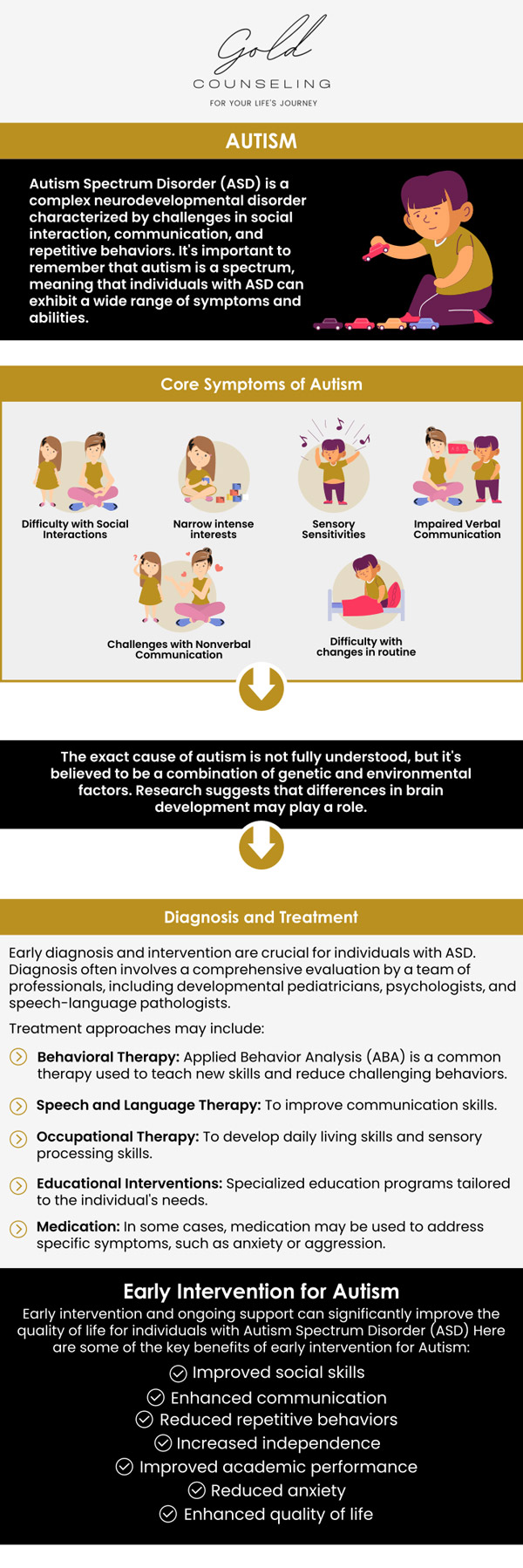How to build strong social bonds with help from an Autism Therapist's insights
How to build strong social bonds with help from an Autism Therapist's insights
Blog Article
Trick Symptoms And Signs to Recognize in Individuals With Behavior Autism
When you run into somebody with behavioral autism, acknowledging key signs and symptoms is important. You may discover challenges in social communications and communication, as well as a strong demand for routines. Furthermore, sensory sensitivities can cause overwhelming experiences. Recognizing these qualities can boost your support and treatments, however there's even more to reveal concerning just how these behaviors show up in day-to-day situations. Allow's explore what these indications really appear like.
Obstacles in Social Communications
When you connect with someone on the autism range, you could discover they battle with social signs and communication. These difficulties can make social interactions feel frustrating for them.
When they do involve, they might talk about their rate of interests in wonderful information without noticing if you're interested. Comprehending these obstacles can aid you come close to interactions with compassion and perseverance, fostering a more comfy atmosphere for both of you.
Trouble With Verbal and Non-Verbal Interaction

Non-verbal communication can be also extra challenging. You might see a lack of eye call or limited use gestures, which can make communications really feel uncomfortable. Faces might not always align with the discussion, leading to complication about their sensations. Identifying these indications is essential, as it aids you far better support and involve with individuals on the autism range. By recognizing their communication difficulties, you can cultivate more purposeful links and supply a more supportive setting.
Repetitive Habits and Regimens
Interaction obstacles frequently accompany other indicators of autism, such as repeated behaviors and a solid choice for regimens. You might discover that individuals with autism often participate in particular, repetitive activities, like hand-flapping, rocking, or repeating expressions. These actions can offer comfort and a feeling of control in an usually frustrating globe.
Regimens are similarly vital; several individuals flourish when they comply with an organized schedule. You may find that modifications to these regimens can cause considerable distress. If they have an everyday routine of consuming breakfast at a certain time or following a particular course to institution, any type of disturbance can trigger anxiety.
Recognizing these patterns assists you understand their actions and provide support. By suiting their demand for regular and enabling repetitive activities, you can develop a much more comfy atmosphere that alleviates their obstacles.
Sensory Level Of Sensitivities
:max_bytes(150000):strip_icc()/VWH-LauraPorter-SpectrumOfAutismTraits-4000x2700-0b5d3311e5794f6ca7e72bdc4672eae5.png)
Usual Sensory Triggers
Sensory level of sensitivities can significantly affect day-to-day live for people with autism, as specific stimuli usually cause frustrating reactions. Typical sensory triggers consist of loud sounds, brilliant lights, and solid scents. You might discover that abrupt noises, like alarm systems or sirens, create anxiousness or distress. Fluorescent lighting in stores can feel uncomfortable and extreme. Textures can also play a considerable function; harsh fabrics or certain food appearances might be excruciating for you. In addition, crowded locations can bewilder your senses, making it tough to focus or relax. Understanding these triggers can aid you handle your setting much better. By knowing what impacts you, you can take actions to lessen discomfort and boost your daily experiences.
Behavioral Actions Clarified
Understanding your behavior actions to sensory sensitivities is crucial, as they commonly disclose just how you engage with the globe. You could notice that specific audios, lights, or appearances view publisher site bewilder you, resulting in anxiety or pain. When confronted with these stimuli, you may withdraw, cover your ears, and even react strongly. These actions aren't just traits; they're your method of managing overstimulation. You might also locate yourself seeking certain sensory experiences, like deep stress or peaceful atmospheres, to assist ground on your own. Recognizing these patterns assists you recognize your needs better and can guide just how you communicate them to others. By acknowledging your sensory level of sensitivities, you can work in the direction of creating an atmosphere that feels more workable and comfy for you.
Coping Techniques Summary
Identifying your sensory sensitivities is just the primary step; currently it's time to discover coping techniques that can assist you take care of those experiences properly. Beginning by creating a sensory toolkit tailored to your requirements. This more tips here can include noise-canceling headphones, fidget toys, or calming aromas. Developing a structured regimen can likewise provide predictability, minimizing anxiousness around sensory overload. When you really feel overloaded, take breaks in a peaceful room to regroup. Exercising mindfulness techniques like deep breathing can assist ground you in the minute. In addition, interact your needs with those around you; having encouraging good friends and family can make a huge distinction. Bear in mind, locating what functions ideal for you might take time, so be patient and open to attempting brand-new approaches.
Limited Passions and Emphasis
While lots of individuals create a large range of passions, those with autism commonly demonstrate restricted interests and an extreme emphasis on details topics. You might notice that someone with autism can invest hours diving right into their favorite topic, whether it's a particular sort of train, a specific film, or a scientific concept. This intense focus isn't just a leisure activity; it can end up being a central component of their identification and social interactions.
You may find that discussions revolve around these rate of interests, and they may have a hard time to engage in wider subjects. By recognizing and acknowledging these restricted interests, you can foster a supportive atmosphere where they really feel valued and recognized, permitting for even more meaningful links and communications.
Psychological Law Difficulties
People with autism frequently encounter challenges in psychological regulation, which can be influenced by description their intense concentrate on details interests. You may discover that when a person is deeply participated in a favored task, they can experience strong emotions, whether exhilaration or frustration. When points do not go as intended., this intensity occasionally makes it hard for them to change equipments or manage their sensations - Aba Therapist Near Me.

Irregularity in Developmental Turning Points
When it comes to developing landmarks, you'll discover that people with autism often reveal a vast variety of irregularity. You may see a child excel in language skills yet struggle with social communications.
It's vital to acknowledge that each person's trip is distinct. Observing these patterns can help you understand their strengths and needs better.
Frequently Asked Concerns
Exactly How Is Autism Identified in Kid and Grownups?
To diagnose autism in adults and kids, specialists review actions, interaction skills, and social communications. They usually use standardized examinations, meetings, and monitorings to identify if a private fulfills the criteria for autism range condition.
Are There Different Kinds of Autism Spectrum Disorders?
Yes, there are various kinds of autism range disorders, including Asperger's syndrome and pervasive developmental disorder-not or else defined. Each type varies in seriousness and characteristics, so comprehending these distinctions can aid you far better assistance individuals with autism.
What Treatments Are Efficient for People With Autism?
When thinking about efficient therapies for individuals with autism, you'll discover alternatives like Applied Habits Evaluation, speech treatment, and job-related treatment. Each technique can help enhance interaction, social skills, and everyday operating customized to individual requirements.
Can Individuals With Autism Lead Independent Lives?
Yes, people with autism can lead independent lives. With the ideal assistance, skills training, and sources, you can assist them establish self-sufficiency, manage day-to-day jobs, and flourish in numerous settings, promoting their freedom.
How Can Families Support Liked Ones With Autism?
You can sustain your liked ones with autism by creating an organized setting, motivating their interests, practicing patience, promoting communication, and advertising social abilities. Commemorate their achievements, no matter how tiny, and develop an encouraging neighborhood.
Although numerous people on the autism range can understand and utilize language, they commonly deal with significant difficulties with both verbal and non-verbal communication. Identifying these indicators is crucial, as it helps you much better support and involve with individuals on the autism range. You may notice that individuals with autism commonly involve in specific, repeated activities, like hand-flapping, shaking, or duplicating expressions.Sensory level of sensitivities can considerably affect everyday life for individuals with autism, as particular stimuli frequently activate frustrating responses.When it comes to developing landmarks, you'll discover that individuals with autism commonly show a vast variety of irregularity.
Report this page